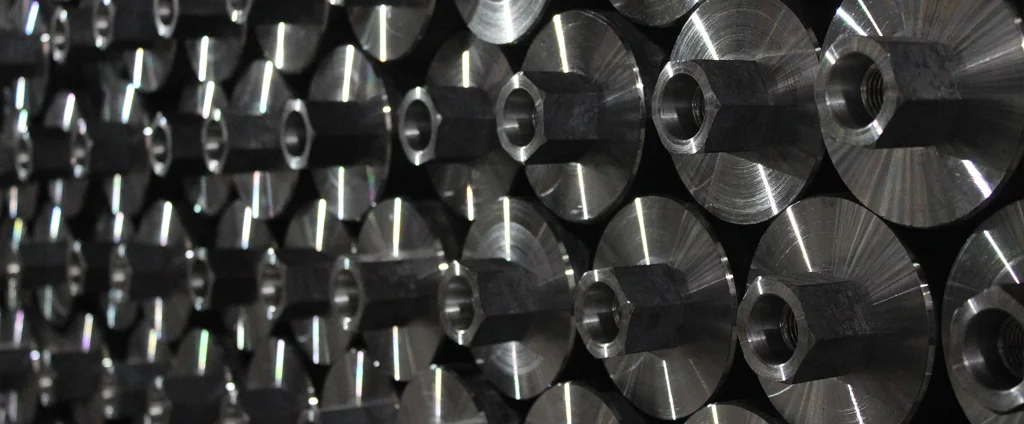SAE/AISI 4137 Alloy Steel (UNS G41370)

SAE/AISI 4137 alloy steel offers a robust combination of high strength, toughness, and wear resistance, making it ideal for demanding industrial applications. Its superior mechanical properties enable reliable performance in components subjected to heavy loads, impact, and fatigue, such as gears, shafts, and axles.
| Chemical Composition | ||
|---|---|---|
| Element | Min | Max |
| Iron | 96.93% | 97.85% |
| Carbon | 0.35% | 0.40% |
| Chromium | 0.80% | 1.10% |
| Manganese | 0.70% | 0.90% |
| Molybdenum | 0.15% | 0.25% |
| Phosphorous | —— | 0.035% |
| Silicon | 0.15% | 0.35% |
| Sulfur | —— | 0.04% |
The following table provides a list of SAE/AISI 4137 properties in both SI and US customary/Imperial units.
Click on the button to switch between Metric and Imperial units.
| Physical Properties | Metric |
|---|---|
| Density | 7850 kg/m3 |
| Mechanical Properties | Metric |
| Young’s Modulus (E) | 190 - 210 GPa |
| Bulk Modulus (K) | 140 GPa |
| Shear Modulus (G) | 80 GPa |
| Poisson’s Ratio (ν) | 0.27 - 0.30 |
| Brinell Hardness | 187 - 229 |
| Thermal Properties | Metric |
| Thermal Conductivity | 42.7 W/m·K |
| Specific Heat Capacity (Cp) | 470 J/kg·K |
| Coefficient of Thermal Expansion (αL) | 1.2×10-5 1/°C |
| Electrical Properties | Metric |
| Electrical Conductivity | 4.23×106 S/m |
| Electrical Resistivity | 2.36×10-7 Ω·m |
The values in this table are approximate and can vary depending on various factors such as the specific manufacturing process and heat treatment applied to the alloy.
Advantages & Disadvantages of 4137 Alloy Steel
| Advantages | Disadvantages |
|---|---|
| High strength and toughness | Relatively low corrosion resistance |
| Excellent wear resistance | Limited weldability |
| Good impact resistance | Susceptible to cracking during heat treatment |
| Suitable for high-stress applications | Requires proper heat treatment for optimal properties |
| Wide range of available sizes and forms | Requires careful machining to prevent distortion |
| Cost-effective compared to some other alloy steels |
Applications of 4137 Alloy Steel
AISI 4137 steel is widely used across industries requiring durable and high-performance components, including:
- Gears and Gear Shafts: Often employed in manufacturing heavy-duty gears, its high strength and wear resistance support power transmission and withstand rotational stresses.
- Axles and Shafts: Utilized in automotive, aerospace, and heavy machinery sectors for components that endure heavy loads and resist bending or breaking under extreme conditions.
- Bolts and Fasteners: Suitable for producing high-strength bolts, screws, and fasteners that withstand high tension and ensure secure structural and mechanical connections.
- Automotive Parts: Used in components like crankshafts, camshafts, steering elements, and suspension parts that demand strength, toughness, and fatigue resistance under dynamic loads.
- Machine Components: Applied in fabricating spindles, couplings, hydraulic parts, and shafts that operate under high stress and require superior mechanical properties.
- Tools and Dies: Ideal for metalworking tools and dies due to its toughness and high wear resistance, suitable for forming, cutting, and shaping metal parts.
- Structural Applications: Employed in construction of bridges, buildings, and machinery frames where high strength and toughness are essential.
